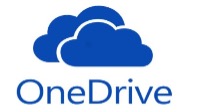ITS Tip: Easy File Storage with OneDrive
Regis faculty and staff are provided a full-featured Office 365 account. This provides access to the main Microsoft Office programs, including Word, Outlook and Excel, and is available on your Regis computer, the web or on your personally-owned PC.
Also included is OneDrive - Microsoft's file storage program. Think of it as a hard drive that can be accessed anywhere you have a compatible device and internet access. As a cloud-based system, OneDrive doesn't require physical items like USB sticks or portable hard drives. This also means there's nothing physical to lose or damage, which dramatically reduces the chance of lost files. You’re also able to save large files without buying costly USB drives, as each OneDrive user gets 1 terabyte - 1000 gigabytes - of storage space.
Additional benefits of your OneDrive account include the following:
Collaboration: Any Office document stored on your OneDrive can be shared with a specific person or groups of people. You're always in control of who sees what and whether they can edit, or just view your work. Choosing the edit option allows you to work alongside them on the same document in real-time, meaning the sometimes complex task of change tracking and acceptance could be a thing of the past.
Synchronization: OneDrive manages document changes without the need to check and update files manually. A document stored on OneDrive and edited on your PC can be resumed on your smartphone exactly where you left it. If you need to make a quick revision ahead of a meeting or presentation, but don't have your computer to hand, it's easy to access and update your document by visiting office.com and signing in with your usual Regis username and password.
These are some of the ways OneDrive allows working with files to be convenient, flexible and more secure. If you have questions about how to best use your OneDrive, please contact the ITS Help Center via services.regis.edu or on 303-458-4050
History Fun Fact: OneDrive storage holds 1 terabyte of information. That is equivalent to 1500 CD-ROMs or 728,000 floppy disks!!!!!

